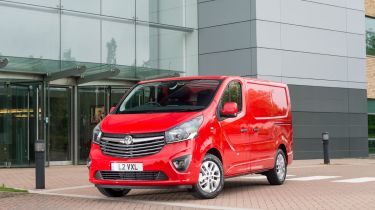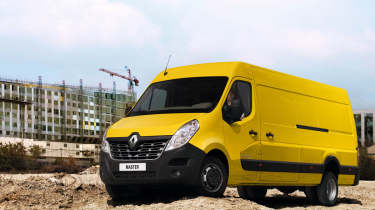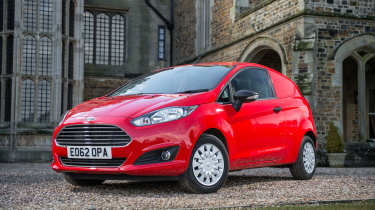Company van tax: understanding the rules
Van drivers need to pay tax, and here we explain the different requirements expected from HMRC in terms of fair use and tax payments

While company cars are taxed on a sliding scale, based on a combination of list price and CO2 emissions, the tax rates for vans are far simpler. However, there are still factors to consider, because depending on how you use your van, Her Majesty's Revenue & Customs (HMRC) will want you to pay different kinds of tax on it.
The simplest form of van taxation is when you use a van for work and what HMRC describes as ‘insignificant private use’. If this describes how you use your van, then you won’t have to pay any tax at all. That’s because HMRC classes the van as having no Benefit-in-Kind (BiK), so it's not seen as a taxable perk that's provided to you by your employer or via your company. However, if you do drive a van for what is defined as 'private usage' you will be required to pay BiK company van tax.
• How to cut your van running costs
What is a van?
Before you get into calculating whether you will need to work out your van tax bill, you need to know the definition of a van for taxation purposes. It might seem obvious, but for the record, these are the criteria that HMRC uses to classify vans and light commercial vehicles (LCVs):
- • A vehicle primarily constructed for the conveyance of goods or burden
- • A gross vehicle weight - fully laden - not exceeding 3,500kg
Work buses and minibuses are not vans, because they are designed to carry people. Double-cab pickups may or may not qualify, depending on various criteria - see below.

What is ‘insignificant private use’?
Insignificant private use sounds like a vague definition, but HMRC has a well defined list of criteria to meet this statement. Basically, commuting directly to and from work is covered, although you can stop off en route to pick up a newspaper, or take a one-off trip to the dentist. But that’s about all you’re able to get away with.
Regular shopping trips or school runs, or taking the van out in the evening are all regarded as significant private usage. If you drive your van in this way, then your company is legally obliged to notify the taxman. Your employer is also likely to keep mileage records detailing your journeys – whether private or work – in order to keep on the right side of the tax inspectors if and when they call.
Company van tax rates
However, using a van privately isn't a cash cow for the tax man, and you can pay far less in tax for a van than you might do for a company car. That’s because vans don't have to meet the same variable scale of taxation that company cars are subject to. Instead, there's a fixed Benefit-in-Kind rate for van drivers – and that value is set at only £3,170.
• Van insurance: how to get the best deal

How much van tax will you pay?
The amount of company van tax you’ll pay is simply your personal rate of tax times that fixed BIK value. So for a 20 per cent taxpayer it’s 20% times £3,170, which gives an annual figure of £630 – or £52.50 per month. 40 per cent taxpayers will pay double for obvious reasons.
Company van drivers also benefit from a very generous fixed Benefit-in-Kind rate for any private mileage fuel paid for by their company. This is set at £598, and again you simply multiply it by your tax rate to find the amount due to HMRC.
For 20 per cent taxpayers, that’s 20% times £598, which gives an annual figure of £119.60 – or just under a tenner a month, regardless of how much fuel your company supplies. Again, 40 per cent taxpayers will be charged double.
Double cab and crew cab pick-up tax rules
The same company van tax principles, and fixed BIK rates, apply to four-door, four seat pick-up trucks in the UK, but there’s an extra level of complication. HMRC has certain guidelines that any pick-up must meet in order to be classified for tax purposes as an LCV. Essentially, any vehicle that has more than one row of seats (as pick-ups do) must have a one tonne payload capability to be classified as a light commercial vehicle.
To find out more about the latest company van tax rules for pick-up trucks, click here...



